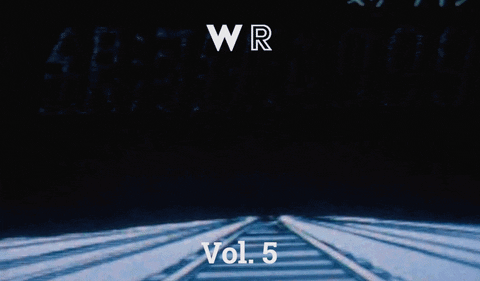- VerseTaku
- Posts
- Kid Cudi's Man on the Moon: The End of Day and Galaxy Express 999: A Cosmic Odyssey
Kid Cudi's Man on the Moon: The End of Day and Galaxy Express 999: A Cosmic Odyssey
In Kid Cudi's debut album, "Man on the Moon: The End of Day," we're taken on a journey through the psyche of Cudi himself, exploring raw emotions, existential questions, and the pursuit of purpose. It's a narrative of self-discovery sprawled across the night sky of sound. Parallelly, "Galaxy Express 999," a revered manga and anime series by Leiji Matsumoto, steams through stars in a train bound for the depths of space and character. It’s an odyssey that contemplates life, machinery, and the soul's destination.

Both works grapple with the concept of identity and individual struggle.
Identity: Cudi's lyrics on tracks like “Soundtrack 2 My Life” and “Solo Dolo” delve into an introspection that mirrors the existential exploration of Tetsuro, the young protagonist in Galaxy Express. Both are questing for meaning in a universe that feels vast and indifferent.
Society: In "Man on the Moon," we're presented with social commentary on tracks like “Day 'n' Nite,” highlighting the loneliness amidst urban life. This resonates with Galaxy Express’s narrative, which critiques a society obsessed with mechanization and the loss of humanity.
Love and Conflict: The search for emotional connection is powerfully felt in Cudi’s “Pursuit of Happiness,” while Galaxy Express features Tetsuro's longing for warmth in a cold galaxy.
Growth: Both Tetsuro and Cudi chart a path of personal growth and enlightenment, emerging from their odysseys with new perspectives.
Across the Soundscape: Lyricism Meets Visual Storytelling
The musical layers in "Man on the Moon" create a dreamscape that complements the ethereal voyage of Galaxy Express. As Cudi's lyrics narrate the internal, the visuals of the anime narrate the external, yet both voyage through similar emotional territory.
"I've got some issues that nobody can see, And all of these emotions are pouring out of me." — Kid Cudi, “Soundtrack 2 My Life”
This seamlessly aligns with the silent cries of Tetsuro as he gazes upon the stars, yearning for answers.
Resonating Souls: Emotional Impact and Community Chorus
Both the album and the series extend a hand to those who feel adrift in a world where they cannot find their place. Fans often share how they've found solace in Cudi's music during dark times, mirroring how Galaxy Express has served as an escape into space for those seeking refuge from the grimness of reality.
A Tapestry of Words and Worlds: Quotations and Lyrics
"At the end of the day, my momma told me don't let no one break me Let no one break me At end of the day, day, nobody, nobody, ever could stop me Ever could stop me."
Cudi’s verses in “Up Up & Away” embrace an uplifting spirit akin to Tetsuro's undying hope. Meanwhile, the cold steel of the mechanized beings in Galaxy Express highlights the struggle in maintaining one's humanity, or as Cudi muses in “Enter Galactic”:
"You can try and numb the pain, but it'll never go away."
Concluding Reflections: The Interstellar Highway to Understanding
Why are these comparisons valuable? For music lovers, "Man on the Moon" offers a fresh narrative structure akin to a cosmic fable, while fans of "Galaxy Express 999" might find in Cudi's music an emotional soundtrack for Tetsuro's journey.
Together, they lead us on an interplanetary expedition to understand the most complex territories known—the human soul and the boundless universe.
Embark on these odysseys, one through sounds and one through stars, and find where your journey intersects with Scott Mescudi and Tetsuro Hoshino. What revelations will the night sky and the cosmos reveal to you?